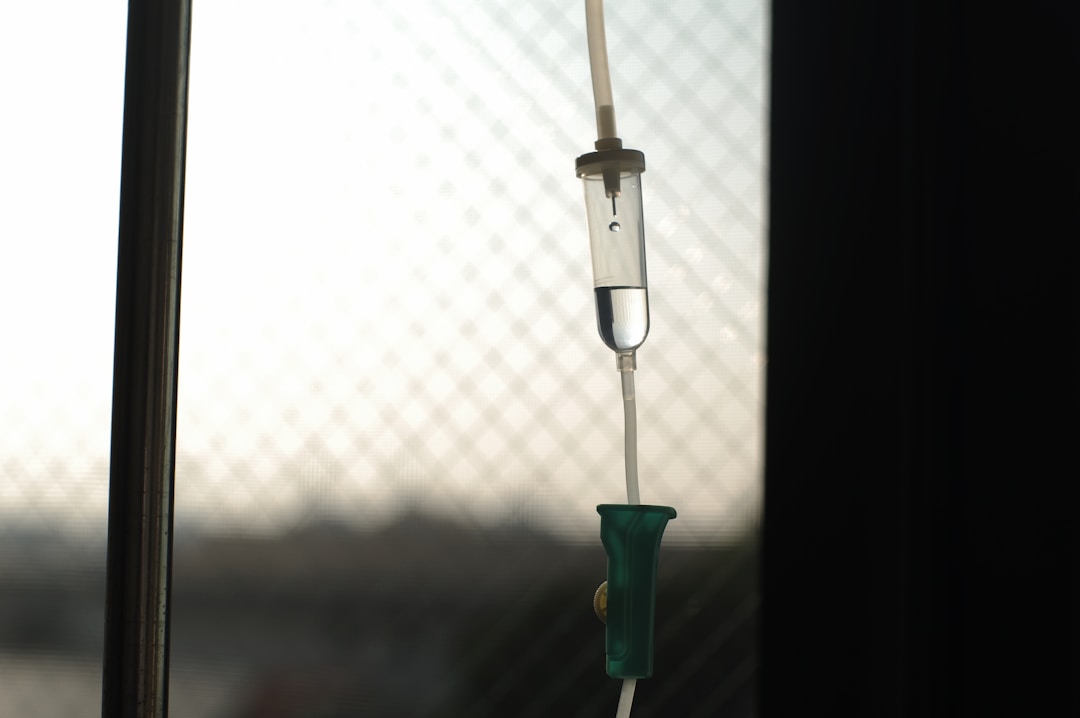NAD, or Nicotinamide Adenine Dinucleotide, has gained attention and popularity in the wellness community over the past few years. As a coenzyme found in all living cells, NAD plays a vital role in the production of energy and various other cellular processes. With age and certain lifestyle factors, our bodies tend to experience a decline in NAD levels, leading to a range of harmful and negative effects on our health and well-being. This is where NAD supplementation comes into play. In this article, we delve into the journey of this fascinating molecule. If you’re interested, keep reading to learn more!
Demystifying NAD+

Before we underscore the significance of NAD+ therapy, it is critical to recognize what NAD+ is and why it is integral to our physiology. NAD+ stands for Nicotinamide Adenine Dinucleotide, a coenzyme found in all living cells. NAD+ plays a substantial role in energy metabolism and is needed for energy production. At the molecular level, NAD+ facilitates the breakdown of carbohydrates and fats, which are then converted into the energy that our cells need to function properly.
The human body naturally produces NAD+, but just like with most biological compounds, the level of NAD+ decreases as we age. The drop in NAD+ levels comes with myriad health ramifications like energy depletion, decreased immunity, and increased propensity to age-related diseases. Note that certain lifestyle factors like stress, sleep deprivation, and excessive alcohol consumption can deplete NAD+ levels.
To counter the declining levels of NAD+, an innovative therapy known as NAD+ therapy was conceived. NAD+ therapy involves administering NAD+ intravenously or sublingually to replenish the diminished levels in the body. This therapy has garnered substantial support for its potential in slowing down the aging process and creating a multitude of health benefits.
The Science Behind Declining NAD+ Levels
As we age, our bodies go through various changes that can affect our health and well-being in numerous ways. One such change is the decline in levels of NAD+. There are a few reasons why our NAD+ levels decrease as we age. One primary factor is the reduced production of NAD+ precursors, such as nicotinamide riboside (NR) and nicotinamide mononucleotide (NMN), which are required to replenish NAD+ levels. Additionally, there is evidence to suggest that increased oxidative stress and chronic inflammation, commonly associated with aging, can also contribute to the decline in NAD+.
The decline in NAD+ levels can have implications for our health. NAD+ is required for the proper function of sirtuins, a family of proteins involved in regulating cellular processes and promoting longevity. These enzymes rely on NAD+ as a coenzyme to carry out their functions, such as DNA repair and gene expression regulation. When NAD+ levels are lower, sirtuins become less active, leading to compromised cellular function and potentially accelerating the aging process.
Beyond that, declining NAD+ levels have been linked to a variety of age-related conditions, including neurodegenerative diseases, metabolic disorders, and cardiovascular issues. By maintaining optimal NAD+ levels, it may be possible to mitigate the effects of aging and promote overall health and longevity. As a result, there has been interest in NAD+ boosting interventions, such as supplementation with NAD+ precursors or activators of NAD+ pathways, in an attempt to counteract the age-related decline in NAD+ levels.
Understanding NAD+ Therapy

NAD+ therapy essentially involves replenishing the diminished levels of NAD+ in the body, typically via intravenous (IV) injections or oral supplements. These delivery methods ensure that NAD+ reaches the cell directly, bypassing the digestive system to offer instant benefits. The use of NAD+ supplements has gained considerable ground over the past decade, with numerous studies extolling its potential health benefits.
Within the cells, NAD+ acts to accelerate the process of ATP (Adenosine Triphosphate) production, which is the primary source of energy for cells. Increased energy at a cellular level results in improved agility and endurance in some cases. Moreover, NAD+ helps restore communication between the nucleus and the mitochondria. This impeded communication is one of the primary causes of aging. Furthermore, therapy with NAD+ may enhance brain function. It achieves this by promoting the health of neurons, protecting them from damage, strengthening the brain’s capacity for neuroplasticity, and improving cognitive functions.
Benefits of NAD+ Therapy
One major benefit of NAD+ therapy is its potential to improve energy levels and vitality. NAD+ acts as a vital component in the production of adenosine triphosphate (ATP), which is the main source of energy in our cells. By replenishing NAD+ levels through therapy, individuals may experience increased energy, improved mental clarity, and enhanced physical performance. This boost in energy levels can be particularly beneficial for athletes or individuals suffering from chronic fatigue.
Another substantial advantage of NAD+ therapy is DNA repair and maintaining the health of mitochondria, which are the energy powerhouses of our cells. By increasing NAD+ levels, this therapy can potentially boost cellular function. Studies have shown that NAD+ therapy may help protect against age-related diseases, such as neurodegenerative disorders like Alzheimer’s and Parkinson’s diseases.
NAD+ Therapy: A Safe Treatment Option?

Many people find themselves concerned about the safety of NAD+ therapy. This treatment is considered safe and without a major risk of serious side effects. It can, however, cause some mild and transient side effects such as nausea, flushing, and light-headedness, particularly when administered via an IV. These symptoms generally subside quickly once the treatment is over. While NAD+ therapy itself is safe, it should not be used as a substitute for conventional medical treatments.
It is best used as a complementary therapy that can be included in a broader regimen of balanced nutrition, regular exercise, and good sleep hygiene. Always consult a healthcare provider before starting any new health regimen. The safety and effectiveness of NAD+ therapy can also be dependent on the health status of the individual receiving it. People with certain underlying health conditions may need to exercise caution when considering NAD+ therapy.
Final Thoughts: The Future of NAD+ Therapy

As we delve into the future, NAD+ therapy appears poised to become a regular component of wellness routines, geared towards enhancing your health and slowing down the aging process. While current research continues to demonstrate promising outcomes, remember that the use of NAD+ therapy is not a magic bullet. Instead, it should be used as part of a balanced health approach that includes nutrition, exercise, and getting plenty of sleep.
As with all medical treatments, it is important to seek professional medical advice before commencing. A knowledgeable healthcare provider can help determine if NAD+ therapy is suitable for your specific needs and guide you through potential benefits and risks.
It’s clear that NAD+ therapy signifies a promising stride in the pursuit of optimum health and longevity. However, the journey of understanding and efficiently harnessing the full potential of NAD+ is just starting.
As this blog indicates, the therapeutic impact of NAD+ therapy has shown significant promise in its ability to delay the effects of aging and bolster your personal health. With ongoing research and an increasing understanding of the underlying science, the future for NAD+ therapy is indeed bright and heralds an exciting era of wellness and health optimization. If you stick to your guidelines and recommendations, you’ll be prepared to give NAD+ therapy a chance if you’re interested in doing so.





